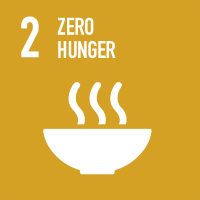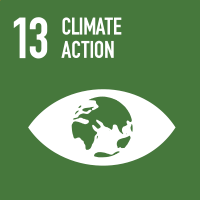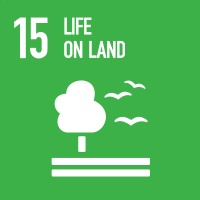Studying at the University of Verona
Here you can find information on the organisational aspects of the Programme, lecture timetables, learning activities and useful contact details for your time at the University, from enrolment to graduation.
Study Plan
This information is intended exclusively for students already enrolled in this course.If you are a new student interested in enrolling, you can find information about the course of study on the course page:
Laurea magistrale in Diritto per le tecnologie e l'innovazione sostenibile - Enrollment from 2025/2026The Study Plan includes all modules, teaching and learning activities that each student will need to undertake during their time at the University.
Please select your Study Plan based on your enrollment year.
1° Year
| Modules | Credits | TAF | SSD |
|---|
2° Year It will be activated in the A.Y. 2025/2026
| Modules | Credits | TAF | SSD |
|---|
6 modules among the following| Modules | Credits | TAF | SSD |
|---|
| Modules | Credits | TAF | SSD |
|---|
6 modules among the following| Modules | Credits | TAF | SSD |
|---|
Legend | Type of training activity (TTA)
TAF (Type of Educational Activity) All courses and activities are classified into different types of educational activities, indicated by a letter.
Integrated Course on Law, Economics and Sustainable Development - Law of agro-enviromental innovation and sustainability (2024/2025)
Teaching code
4S009805
Teacher
Credits
6
Language
Italian
Scientific Disciplinary Sector (SSD)
IUS/03 - AGRI-FOOD LAW
Period
2° periodo lezioni (2A) dal Feb 12, 2025 al Mar 25, 2025.
Courses Single
Authorized
Program
The module aims to provide the student with the knowledge of the broad relationships between agricultural activity and agricultural law, on the one hand, and the sustainability of the planet and environmental law, on the other hand, taking into account the concept of agri-food chain, food safety and European "Farm to fork" and biodiversity strategies. The current international framework will be deepened: European Green Deal; Agenda 2030, international negotiations and debates on climate change.
Distance lessons (6 hours) are dedicated to the following topics:
• Fundamentals of agricultural law and characteristics of agricultural activity.
• Agricultural models towards sustainability.
• International debates around food security and sustainability.
• European regulation on the use of plant protection products.
The face-to-face lessons (30 hours) are dedicated to the following topics:
• Sources of agricultural law and food security.
• Sources of environmental law and sustainability.
• Characteristics of traditional agriculture.
• Organic production.
• Integrated production.
• Sustainable production.
• Precision agriculture.
• Designations of origin and geographical indications.
• GMOs.
• The precautionary principle in agriculture.
• Protection of biodiversity.
• Protection of biodiversity and possibility of patenting.
• Due diligence of agri-food companies for the purposes of sustainability and protection of the world's forests.
Bibliography
Didactic methods
The course will be held in Italian language.
The course includes a combination of lectures for 30 hours (supported by the use of ppt presentations). Another 6 hours will be pre-registered.
Since the first lesson, a dynamic teaching model will be encouraged which foresees the active participation of students. Group exercises will be organized according to the Problem Based Solving (PBS) method. At the end of the course, the presentation of the in-depth papers and the final discussion are organized.
During the course, two focuses are organized with the support of the PBS (problem based solving) methodology:
• Focus and in-depth study of the sources of agri-environmental law and of community, state, regional and municipal competences in agri-environmental matters (PBS)
• Focus and in-depth analysis of the regulation of plant protection products (PBS)
In the classroom and through the Moodle platform, various debates will be launched to encourage the participation and understanding of the topics covered.
View the bibliography with Leganto, a tool that the Library System makes available to retrieve the texts in the exam program in a simple and innovative way.
Learning assessment procedures
Students attending classes will be evaluated by means of both:
1) an oral exam on the topics addressed during the course;
2) a written paper (max 3,000 words) and its oral presentation.
Students must pass both tests with a minimum score of 18 points each. The final grade will be based on the arithmetic average of the two grades.
Furthermore, additional points may be awarded to the arithmetic average in consideration of student's active and positive participation:
- in the forums and lessons (max 1 point).
- in the PBS (max 3 points).
For students who will not attend the lessons, the assessment of learning will take place through a single oral test.
Non-attending students are invited to consult the Moodle platform and contact the teacher in case of doubts as well as to check if regulatory changes have occurred.
Evaluation criteria
The evaluation will be based on the following criteria:
- the depth and breadth of knowledge acquired;
- critical and reasoned study;
- ability to organize knowledge discursively based on the characteristics and legal principles of the subject;
- the ownership of language (legal and specialized) and quality of the presentation;
- the analytical and argumentative ability.
In the case of essays and PBS, the creativity and quality of the presentations.
The final evaluation is expressed in 30ths.
Exam language
Italiano. Gli studenti Erasmus frequentanti potranno realizzare la prova in spagnolo.




